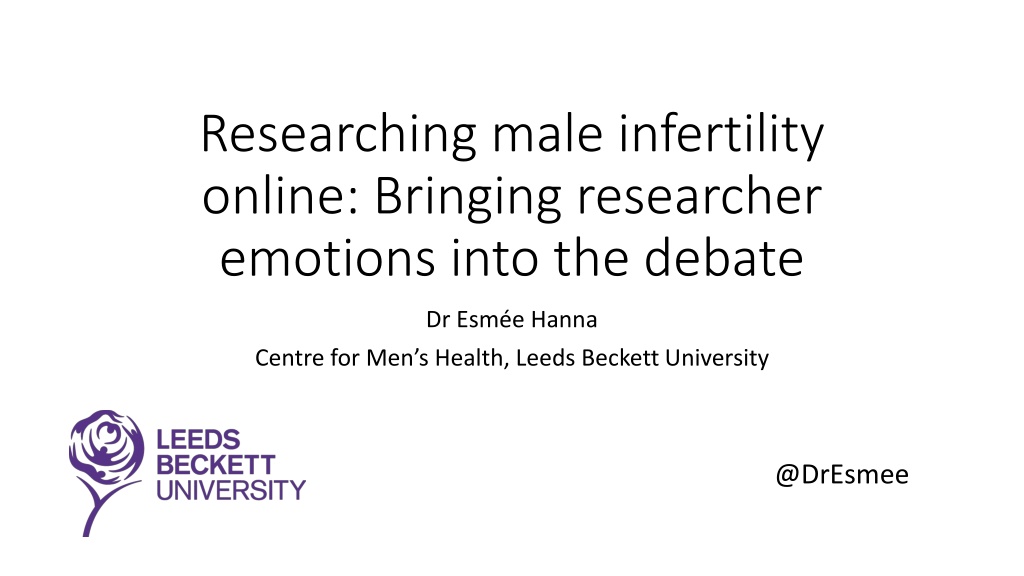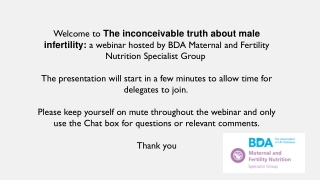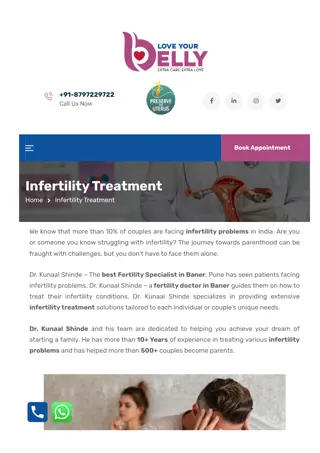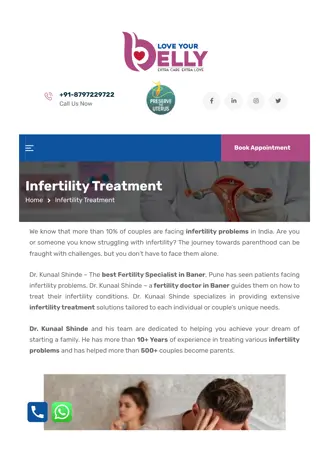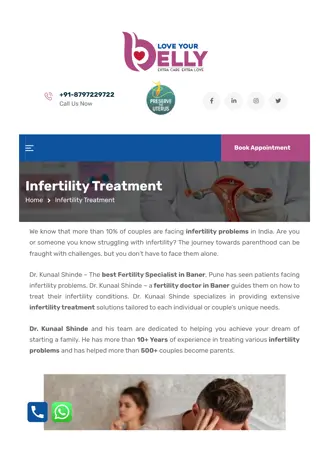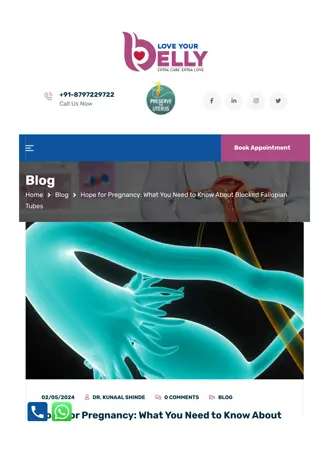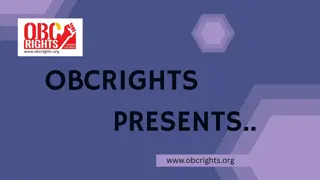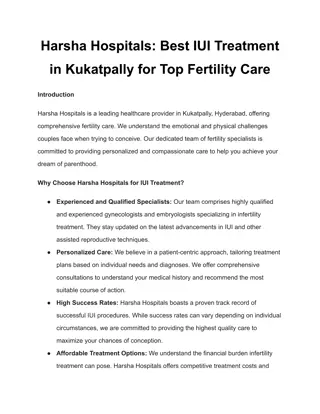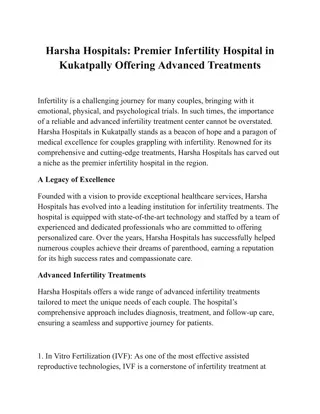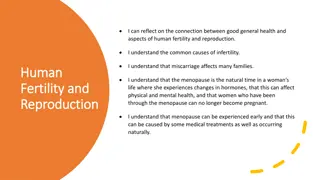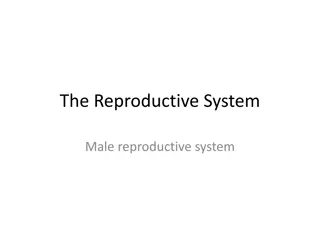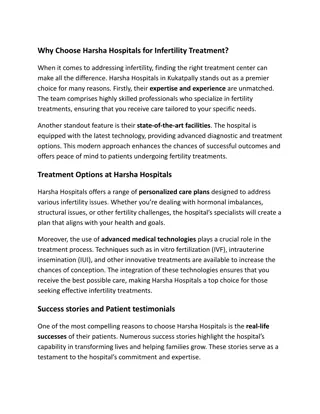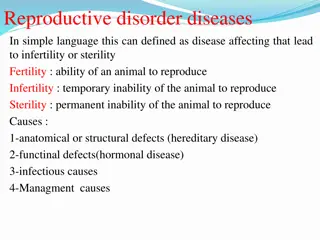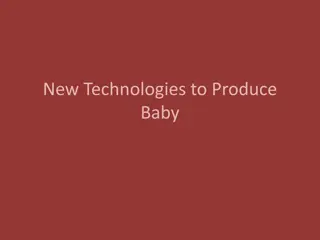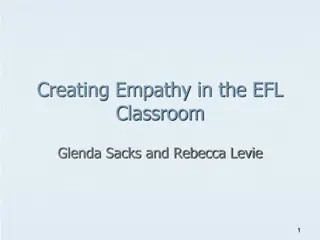Exploring Emotions in Male Infertility Research Online
Researching male infertility online involves exploring the emotional aspects of the researchers. This study delves into the experiences of researchers in sensitive men's health topics, such as male infertility, depression, grooming, and eating disorders. The focus is on the ethical considerations and the emotional intensity of qualitative research, shedding light on the impact of emotions on both personal and professional levels.
Download Presentation

Please find below an Image/Link to download the presentation.
The content on the website is provided AS IS for your information and personal use only. It may not be sold, licensed, or shared on other websites without obtaining consent from the author. Download presentation by click this link. If you encounter any issues during the download, it is possible that the publisher has removed the file from their server.
E N D
Presentation Transcript
Researching male infertility online: Bringing researcher emotions into the debate Dr Esm e Hanna Centre for Men s Health, Leeds Beckett University @DrEsmee
Researching reproduction online Online spaces are used in researching a variety of other sensitive men s health topics, such as depression (Gough, 2015), male grooming (Hall, 2015), eating disorders (Day & Keys, 2008; Flynn & Stana, 2012) Such spaces are viewed as a useful means for accessing men where they are, and as offering naturalistic access which may not be otherwise available to some communities (Kozinets, 2015; Langer & Beckman, 2005) Increasing use of online forums as way to research those experiencing infertility (Hinton et al., 2010; Epstein et al., 2002; Malik and Coulson, 2008) allowing naturalistic enquiry and access to population beyond clinics Some precedence around online forums and male infertility (i.e. Malik and Coulson, 2008)
Online methods = Ethics? Much of the methodological focus about researching online has been about ethics, rather than the how to of conducting online research Ethical discussions have therefore focused around covert/overt researching, openness of forums, anonymity/confidentiality Ethical positions around online work now stabilising (Eysenbach and Till, 2001;Rodham and Gavin, 2006; BPS ethical guidance) Yet there has been no major engagement around the experience of researching online from the researchers perspective and the potential emotive nature of this type of work
Background to our research We recently completed a qualitative project around the experiences of male infertility online (Hanna & Gough, 2016a; 2016b) Research was positioned as broadly feminist in standpoint, seeing gender equity tied to the dismantling of reproduction as solely a site of women s labour Took a psychosocial approach to our analysis; that is we explored social and individual understandings of male infertility (Roseneil, 2006) During the project the emotional aspects of researching in this way emerged
Researcher emotions within reproduction research Qualitative research has been seen to be the most emotional intensive methodology within social research, and emotions can have personal and professional impacts (Holland, 2007) It is suggested that emotionally engaged research opens up space for new questions, ideas and interpretations. (Blakeley, 2007:65) but ethical care needs to extend to researchers regarding emotions Has been some engagement within reproduction around researcher emotions (c.f. Carroll, 2012) however this often frames itself as significant in relation to feminist and/or sensitive research methods, rather than particular to reproduction research Reproduction research by its very nature is likely to be sensitive so should repro-researchers be more at the front of the researcher emotions debate?
Empathy from afar As a qualitative researcher being able to engage with research participants, to actively listen to their stories is my norm for research There is then a challenge of empathising but not being able to convey such empathy within a one way online research relationship Men on the forum conveyed highly emotive stories, charting distress, anger, despair, hurt, anguish in relation to infertility The online researcher is therefore absorbing such emotion, yet not able to offer demonstrative expression of this to the research subject which is particular tension within the online research dynamic
What happened next? Forums often use narrative presentation (original post of theirstory , return visits to update and engagements from others) Reproduction is part of the life course that has visible outcomes, i.e. conception, and for topics such as this the sense of whathappened may be more apparent a question than in other research Hey [Posters name], What happened? I love to hear other peoples stories but they never seem to conclude! I hope it ended well for you (Forum Poster 1) Whilst with time the sense of wondering faded, during the data coding and analysis phase, the question of why men disappeared from the forum, or how they stories unfolded remained quite omnipresent
Detachment for whom? Men often using online forums to share their feelings and experiences with an externalised/remote audience Despite the emphasis on emotional detachment and neutrality, researchers can become deeply involved in their subjects lives, particularly when there is sustained contact between researchers and subjects (Bellas, 1999: 104) Would argue that online research can itself involve sustained (distanced) contact, particularly when reproduction experiences are often presented narratively (i.e. as a journey through diagnosis to treatment and +/- outcomes) It has been suggested that written testimonies can have the equivalent power of highly emotive congruent verbal testimonies (Kaufmann at al., 2003) The process of gathering data may therefore also involve emotion work for researchers, being distanced via the virtual world, may not detach us from participants
How can we manage emotional work online? I adopted a number of strategies to manage the experience: Rationed how much time I spent on the analysis Debriefed with co-author I also sought to utilise the emotion of the experience positively We need greater understanding and support around infertility for men. The sadness I felt for their distress was a useful reminder of why we should seek to evidence areas which have been overlooked such as men s experiences of infertility often have Researcher emotion can be a personal driver for research agendas and impact and harnessed to move forward debates in important areas within reproduction research
What does this mean for reproduction research? Tacitly, other researchers have discussed the emotive experience of online research in relation to reproduction- these voices need capturing more however Raises for me questions about researcher emotion within reproduction research, and how much we consider this as an important methodological aspect Should we be thinking further about how we support researchers conducting reproduction research both on- and off- line?
Conclusions Although online research can sometimes be portrayed as an easy option for accessing naturalistic accounts, the experience of conducting such research is not always emotionally easy Emotions in research are however not inherently problematic, emotions are part of human life and thus an important means for understanding the lives of social actors Researchers can also usefully adopt methods to protect their own wellbeing in relation to the feelings arising from online research We do not seek to argue for detachment in online reproduction research, rather that researchers should adopt a careful consideration of why online narratives may evoke powerful feelings, as these emotions may be a useful tool for examining the reproductive experiences of those whose lives we seek to understand
References Bellas, M.L (1999) Emotional Labor in Academia: The Case of Professors. Annals of the American Academy of Political and Social Science 561: 91 110. Blakely, K. (2007). Reflections on the role of emotion in feminist research. International journal of qualitative methods. 6 (2): 59-68 BPS. Ethics guidelines for internet mediated research. [Online]. http://www.bps.org.uk/system/files/Public%20files/inf206-guidelines-for-internet-mediated-research.pdf Carroll, K. (2012). Infertile? The emotional labour of sensitive and feminist research methodologies. Qualitative Research. doi:10.1177/1468794112455039 Day, K. and Keys, T. (2008) Starving in cyberspace: a discourse analysis of pro-eating-disorder websites.Journal of Gender Studies. 17 (1): 1-15 Epstein, Y.M., Rosenberg, H.S., Grant, T.V. and Hemenway, N. (2002). Use of the internet as the only outlet for talking about infertility. Fertility and sterility,78(3), pp.507-514. Eysenbach, G and Till, J (2001) Ethical issues in qualitative research on internet communities. BMJ. 323: 1103 Flynn, M and Stana, A. (2012). Social Support in a Men's Online Eating Disorder Forum. International Journal of Men's Health. 11: 150-169 Gough, B. (2015). Men s depression talk online: A qualitative analysis of accountability and authenticity in help-seeking and support formulations. Psychology of Men & Masculinity, http://dx.doi.org/10.1037/a0039456 Hall, M. (2015). When there s no underbrush the tree looks taller : A discourse analysis of men s online groin shaving talk. Sexualities,18(8), pp.997-1017. Hanna, E and Gough, B. (2016a). Searching for help online: An analysis of peer-to-peer posts on a male-only infertility forum. Journal of Health Psychology. DOI: 10.1177/1359105316644038 Hanna, E and Gough, B. (2016b). Emoting infertility online: A qualitative analysis of men s forum posts. Health. DOI:10.1177/1363459316649765 Hinton, L., Kurinczuk, J.J. and Ziebland, S. (2010). Infertility; isolation and the Internet: A qualitative interview study. Patient education and counseling,81(3), pp.436-441. Holland, J. (2007). Emotions and research. International journal of social research methodology. 10 (3): 195-209 Kaufmann, G, Devland, G, Wessel, E, Overskeid, G and Magnussen, S. (2003) The importance of being earnest: Displayed emotions and witness credibility. Applied Cognitive Psychology. 17: 21-34 Kozinets, R.V. (2010_. Netnography: Doing ethnographic research online. Sage publications. Langer, R and Beckman, S. (2005).Sensitive research topics: netnography revisited. Qualitative Market Research: An International Journal. 8 (2): 189 203 Malik, S and Coulson, N. (2008). The male experience of infertility: a thematic analysis of an online infertility support group bulletin board. Journal of reproductive and infant psychology, 26 (1), 18-30 Rodham, K. and Gavin, J. (2006). The ethics of using the Internet to gather qualitative research data. Research Ethics Review. 2 (3): 92-97 Roseneil, S. (2006). The ambivalences of Angel's arrangement : a psychosocial lens on the contemporary condition of personal life. The Sociological Review, 54(4), pp.847-869.
Thank you for listening! e.s.hanna@leedsbeckett.ac.uk Twitter: @DrEsmee Blog: dresmee.wordpress.com
